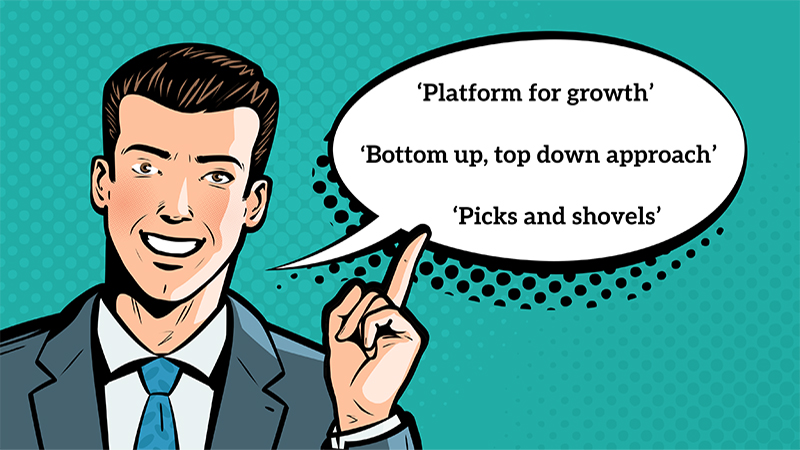By Peter Sleep, investment director at Callanish Capital
As I end 17 years at one firm and start out at another, it is a good opportunity to dissect some of the hidden meanings behind the jargon that investors often hear fund managers say. They hide behind a lot of technical terms to cover their shortcomings, so understanding them should help investors cut through to their true meaning.
A good example of this is when a manager claims to have a ‘bottom up, top down approach’. This generally translates to mean that the manager has no investment philosophy or process at all, other than they will buy and sell what they want, when they want – often after reading that morning’s Metro.
Other varieties of this phrase include when a manager’s approach is ‘holistic’ or ‘more art than science’.
Another term to be wary of is when you are told a company they hold is a ‘platform for growth’ – a platform is something you stand on, not something to grow from. If a company is a growth company, it should be obvious.
Invariably, a so-called ‘platform for growth’ often ends up being an old world, no-growth company that throws off some cash which it then uses to buy other no-growth companies. Fund managers will get excited when this stagnant company shows signs of starting to grow, but it quickly disappoints once it throws more money at non-productive acquisitions again.
If you invest in a ‘platform for growth’ company, you will soon become acquainted with the term ‘non-cash charge’ – which in fund manager-speak often means something along the lines of, “it is not important because it is a non-cash charge”. If it sits in the balance sheet, it got there because it was bought for cash (or possibly shares) which some fund managers forget have a monetary value.
See also: How to invest in an interest rate falling world
You will also hear some fund managers say their companies are ‘EBITDA positive’. That is a euphemism for horrendously loss making.
If the company is profitable, or just cashflow positive, the fund manager would say so. Do not be taken in by the word positive – it is not.
A fund manager might also say that a company makes the ‘picks and shovels’ for a certain industry. In reality, this means that the company is involved in something technical that the fund manager does not understand, except by analogy so old it goes back to the California Gold Rush of 1849.
Be particularly careful of companies involved in hot new fields such as medical discovery or crypto. The ‘picks and shovels’ company is most likely also ‘EBITDA positive’.
‘Quality’ is another term that has become so overused by fund managers that it has come to mean, “any company that is in my fund”.
To a quant, ‘quality’ is a company with high levels of operating profitability and low levels of capex. To everyone else, it is just a word you put in front of the word ‘stock’.
Hopefully now knowing the hidden meanings behind some of this jargon should make your next fund manager meeting more interesting.










